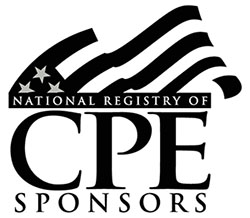
A Two-Day Classroom Seminar (CPE Approved)
Register Soon to get Early Bird Pricing.
The electric and gas utility business is changing and being challenged by new technologies, new competitors and regulatory drivers. This in-depth two day program provides a comprehensive and up-to-date explanation of the structure, technology changes, financing and regulatory challenges currently underway in the world of renewables rooftop solar and other forms of distributed energy generation.
California is implementing 33% renewables by 2020 and 50% by 2025 (it is already at 25%) and is changing the grid landscape as it moves toward a world of rooftop solar, distributed generation and renewables These changes are impacting the utilities within California and many other states. Energy storage is expected to gain traction due to possible technological breakthroughs and cost reductions making both batteries and fuel cells economically viable Smart grid solutions are moving from promise to delivery. The Microgrid is beginning to move from concept to commercialization.
In two days, this seminar will bring you up to speed on the changes taking place in this fast-changing industry. The seminar will provide insights for utility planners, investors, technology vendors and many other stakeholders in an evolving utility landscape.
- How the 21st century utility will need to leverage a portfolio of enabling technologies for distributed energy resources.
- How the new decentralized Green Grid might impact grid stability and consumer pricing.
- The economic challenge of paying for the new Green Grid and how these costs will be allocated; Net metering issues, utility surcharges and the pros & cons of these and other proposals.
- How distributed generation, renewables, energy storage & utilities can work together.
- What are the economic tradeoffs in building or not building new power stations or transmission lines.
- The grid faces increased volatility from multiple sources including mandated reductions in emissions, unpredictable renewables, severe weather, increased threat to grid security and increasing demand. How is an electric utility able to cope with these multiple challenges?
- The increasing importance of natural gas to balance load, maintain peak power and provide grid stability.
- How is renewable energy development impacting the stability, power quality and reliability of the grid system.
- What role is energy storage playing in these changing the market dynamics for both renewables and distributed generation.
- What will be the financial impact on utility stocks, financing this transition and the cost of borrowing.
- What the "Duck Curve" tells us about managing a Green Grid.
- How do Demand Response and Energy Efficiency programs fit into the new grid structure.
- What state level initiatives are pushing distributed generation, renewables and energy storage. Learn how Gridmarket is working with energy storage technologies in New York.
- How the Microgrid is moving toward commercialization as well as a Case Study of the Microgrid: can it work without government support and subsidies?
- How the new decentralized grid will impact the existing power grid as well what are the investment opportunities.
- Why everyone can't be like NRG? An examination of how they are set up for competition and deployment of new technologies.
- How Distributed Energy can be a disruptor to utilities or an adjunct to utility assets.
- The role Solar plus Energy Storage plus Electric Vehicles play in the market (V2G).
- Energy Storage options for multiple battery technologies and fuel cell technologies.
- The terminology of distributed generation, distributed energy resources, the microgrid, energy storage, intermittency, and islanding will be explained in detail.
- Regulatory drivers to reduce emissions under California AB 32 implementation and RGGI in the Northeast.
- How the Renewing the Energy Vision of New York is impacting both utility planning and investment.
- How California's incentives for energy storage work.
- The 21st century utility model for both central station and DG.
- How to integrate diverse distributed energy resources into workable clusters.
- The rise of Big Data and Analytics to enable the Green Grid.
- The various technologies and configurations used in Distributed Generation.
- Some of the benefits of Distributed Generation including cybersecurity, electricity reliability and economics.
- Where Renewable Energy is forecast to develop faster
- Where Energy Storage markets are presenting opportunities such as AES strategy to ramp up storage.
- The Smart Grid development and success stories.
- Impacts on the Least Cost of Electricity (LCOE) Model
- What is the Changing Utility Business Model?
- What is the Changing Regulatory Model?
- What is the technology backbone of this new emerging industry and how can it be managed best.
- The new competitors and service providers
- How Climate Change and Resiliency issues are being addressed.
- Legal and Regulatory Factors
- Utility market challenges and opportunities
- Building a comprehensive framework to sort out the 21st century electric utility industry.
Peter C. Fusaro wrote the New York Times best seller “What Went Wrong at Enron” and is an international expert on sustainable finance, carbon markets and renewable energy, His knowledge of the energy industry goes back almost 5 decades as both a policy maker at the US Department of Energy in Washington DC and as a senior executive at a multinational oil company and at an original equipment manufacturer. Peter founded and runs the Wall Street green Summit, the oldest sustainable finance event in North America.
Peter has been very involved in ESG (Environmental, Social Governance) and impact investing for the past decade. Formerly, he was a member of trading and markets committee of the voluntary Chicago Climate Exchange and on the board of Carbon Trade Exchange in the UK and Australia. Peter was also involved in implementation of AB32, California’s Climate Change law, and Clean Development Mechanism projects under the Kyoto Protocol. Through PGS and other entities such as the Swiss Finance Institute in Geneva, he has taught over 1,000 people on carbon markets and carbon finance. Today, carbon markets are in an upsurge with over 65 mandatory markets as well as voluntary markets throughout the world. Peter offers unique insights into their market development and maturation.
Peter has been on the Advisory Board’s of the University of Michigan Erb Institute for Global Sustainable Enterprise and Bard College’s MBA in Sustainability. He was an adjunct professor at Columbia University and developed and taught a popular renewable energy project finance course. He is a graduate of Tufts University with an MA and Carnegie-Mellon University with a BA.
- Additional attendees and government employees receive a 10% discount.
-
Register 4 or more attendees and receive 20% Off.
Special pricing is available for groups of 5 or more.
If you want attendees to pay with separate credit cards or have other questions, please call (440) 853-1038 for assistance.
This live group seminar is eligible for 12.0 CPE credits. Be aware that state boards of accountancy have final authority on the acceptance of individual courses for CPE credit. As of January 1, 2002, sponsored learning activities are measured by program length, with one 50-minute period equal to one CPE credit. One-half CPE credit increments (equal to 25 minutes) are permitted after the first credit has been earned in a given learning activity. You may want to verify that the state board from which your participants will be receiving credit accept one-half credits.


The Global Association of Risk Professionals (GARP) is a not-for-profit membership association dedicated to preparing professionals and organizations for making better-informed risk decisions. GARP's membership represents more than 150,000 risk management practitioners and researchers at academic institutions, banks, corporations, government agencies, and investment management firms in 195 countries and territories. GARP administers the Financial Risk Manager (FRM) and Energy Risk Professional (ERP) Exams – certifications recognized by risk professionals worldwide. Visit www.garp.org/cpd.
Among those who would benefit from attending this classroom seminar are electric and gas utility professionals, renewable energy project developers, state & federal regulators, attorneys, consultants, technology providers, energy storage companies, software service providers, electricity and gas marketers, corporate planners, engineers, banks and hedge funds, venture capitalists, real estate executives, entrepreneurs, environmentalists, accountants & auditors, industrial trade groups, equipment manufacturers, suppliers, students, and utility planners, investors, technology vendors and anyone needing a solid overview and foundation of distributed energy, what the Microgrid is, where the industry is going, and what opportunities there are for investors, technologies, and end-users in an evolving utility landscape.
This is the fundamental level group seminar. Besides the seminar note both handouts and follow up collateral will be provided to attendees.
PGS seminars are known for their clear explanations and in-depth content. Register for a PGS class today, and join the over 10,000 energy professionals who have already attended one of PGS's proven programs.
